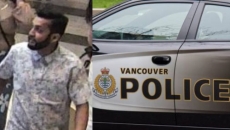The Chinese Canadian Museum in Vancouver has received about $5 million in new federal funding ahead of its opening on July 1.
Federal International Trade and Economic Development Minister Mary Ng said the new funding will go toward renewal of the museum's permanent space at the Wing Sang Building in Vancouver's Chinatown, as well as supporting the facility's first exhibit.
Protecting Chinese Canadian heritage is crucial to the preservation of our history. Our government is investing over $5 million to support the preservation and celebration of Chinese culture by funding the first ever Chinese Canadian Museum! pic.twitter.com/uuQJ8W276a
— Mary Ng (@mary_ng) May 23, 2023
The museum will feature an exhibition titled "The Paper Trail to the 1923 Chinese Exclusion Act," with the July 1 opening date coinciding with the centennial of the passing of the act which effectively halted all immigration from China.
"I think it's about one of the most important stories that this museum is going to tell," Ng told a news conference Tuesday. "And the inaugural exhibit of this particular story, on this particular year … is so important."
The Wing Sang building is the oldest remaining building in Vancouver's Chinatown, with parts of the structure dating back in 1889.
Grace Wong, chairwoman for the board of the Chinese Canadian Museum, said the funding comes "just in time" and will provide essential support for the museum as it goes through final preparations for its opening in a little over a month, she said.
The museum gives the sacrifices and hardships undertaken by Canada's earlier Chinese settlers a physical presence, providing important insights into Canadian history and how it relates to society today, Wong said.
"It's a thread that ties and binds Chinese Canadians from coast to coast to coast," she said. "The Chinese Canadian Museum creates a permanent home for these legacies, and we will share this history, culture and living heritage of these generations of Chinese in Canada, past, present and future."
The funding announcement came on the sidelines of the U.S.-Canada Chinatown Cultural Preservation and Revitalization Conference, which is hosting representatives from 18 Chinatowns from across North America.
Ng said efforts like the museum and the conference are key to keeping a crucial part of North American history alive and to allow people to "appreciate the diversity of our society."
"You have to understand where you have been to be able to chart the kind of future you want for your country," Ng said.
"It really is as much about knowing the past as it is paving the way for the future."
The Chinatown conference Tuesday and Wednesday in Vancouver is gathering representatives from other Canadian cities including Calgary, Edmonton and Toronto, as well as U.S. cities including San Francisco, Philadelphia and New York.
Vancouver Chinatown Foundation chairwoman Carol Lee, one of the main organizers of the event, said she is ecstatic that the conference was able to draw 50 leaders from North American cities as well as U.S. Ambassador to Canada David L. Cohen in its first year.
Lee said her team is working on a report to compile the lessons learned from talking with other Chinatowns, hoping the combined experiences of the challenges faced by different cities during the pandemic can help inform each community on how to build back stronger.
"It makes me realize it when I hear some of the challenges they are facing in Philadelphia's Chinatown or New York's Chinatown," Lee said. "I thought we have so many challenges, and we do, but so do all of the other Chinatowns. So I hope we can each learn from one another."
Lee said that, given the strong response to this year's inaugural event, organizers are already optimistic about hosting another Chinatown conference in Vancouver next year.






